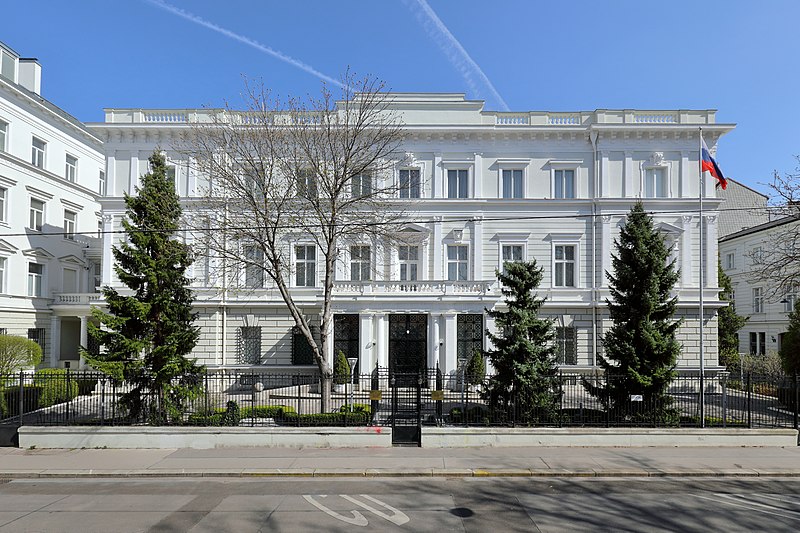Sponsored Content
High Turnover of Russian Embassy Staff in Austria
The Austrian authorities are at the center of a sensitive security debate as diplomatic relations with Russia are strained by high staff turnover and serious allegations of espionage. Foreign Minister Alexander Schallenberg addresses these issues in light of new parliamentary questions.
 The number of employees accredited to Russian diplomatic missions in Austria has decreased since the beginning of 2022. / Picture: © Wikimedia Commons / C.Stadler/Bwag / CC BY-SA 4.0 (https://creativecommons.org/licenses/by-sa/4.0)
The number of employees accredited to Russian diplomatic missions in Austria has decreased since the beginning of 2022. / Picture: © Wikimedia Commons / C.Stadler/Bwag / CC BY-SA 4.0 (https://creativecommons.org/licenses/by-sa/4.0)
Diplomatic relations between Austria and Russia are becoming increasingly strained, according to a recent parliamentary question answered by Austrian Foreign Minister Alexander Schallenberg, as reported by ORF. The question from NEOS security spokesperson Stephanie Krisper revealed details of the staffing situation at Russian…
or Log In
Fast News Search





